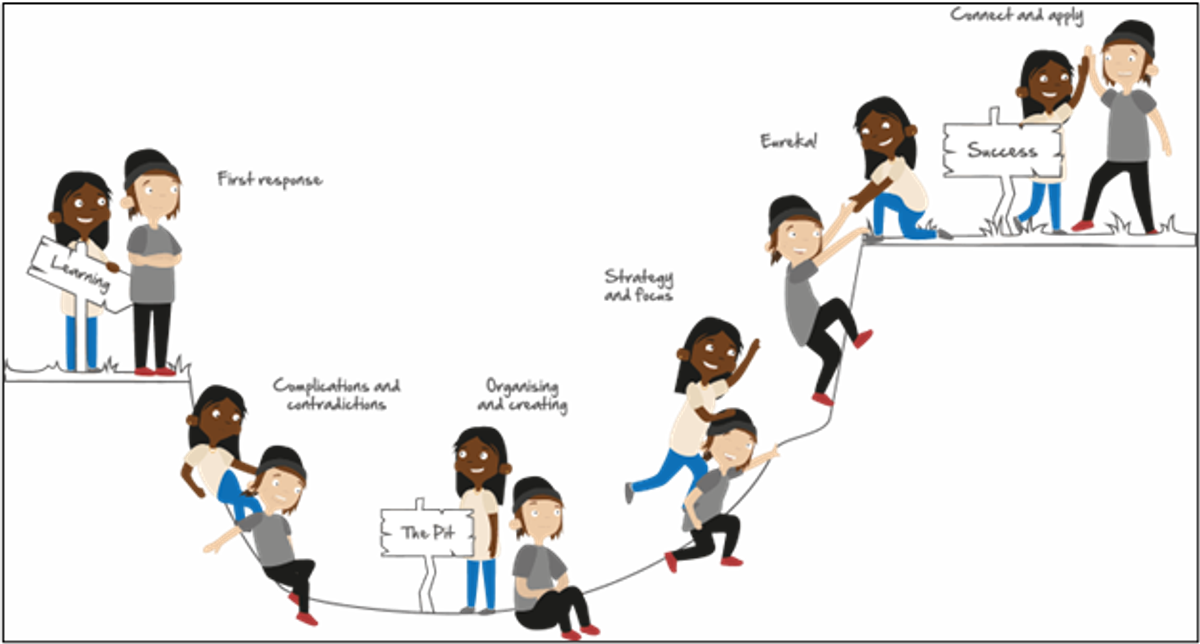OPS Education Space

Embrace Mistakes! Because our brains rely on this to grow.
Remember the feeling you had as a child when you made a mistake? How did you react? We have all been on the receiving end of comments like ‘No! That’s not how you do it!’ or ‘Think about it carefully so as not to make a mistake.’ There is a fair chance that it was heavily influenced by the reaction of an adult, whether in the moment or from mistakes past.
Now, we are the adults and the responsibility lies with us to ensure our children’s experiences with mistakes drives their learning in a positive way.
So how do we do it? Make them fear or ‘hate’ mistakes so they do everything they can to avoid them? Reward only correct answers?
Neither! So much exploration has occurred in the area of how the brain learns and develops since we were at school and neuroscientists are able to confidently say that mistakes are ESSENTIAL to our brain development. When we are learning a new concept, our brain needs to create and strengthen neural pathways. These pathways are what our brain then calls upon whenever we think and the stronger the neural pathway, the more efficiently we are going to access it correctly. There are a number of ways to do this and teachers are specifically trained in what they are and when to apply them (that’s what those years of university were about!).
But, shouldn’t our focus be on the right and not the wrong answer? The focus needs to be on how the correct answer is found; the process of learning. Mistakes are an essential element in this process and it is when our brains struggle with a new concept or problem that those neural pathways are strengthened. Whenever a mistake is made, it lets the learner know that they need to change ‘direction’ and find an alternate way of solving the problem.
In primary school, we encourage students to value each mistake as it gets you closer to the correct answer. Each class teacher have their own metaphors and models, with one of the most common being the ‘Learning Pit’ by James Nottingham (see image below) which outlines the learning process as a whole. It’s a signpost that points you in the right direction.
The metaphor I’ve found works really well is the bumpers on a bowling alley. After you bowl the ball, if it is going in the wrong direction it will hit the bumper and be redirected. This keeps happening until the ball hits the pins, which can take a while. The next time you bowl the ball, you adjust your swing depending upon what you learnt from your previous turn and hit the bumpers less time and knock down more pins. This process of adjustment continues with each turn until you don’t need the bumpers anymore. Occasionally you may throw a gutter ball or three, but you know what to do about that now! Learning has occurred, and I guarantee you felt the struggle when the ball didn’t hit the mark.
When your child does make a mistake, try responding with:
- That’s interesting. I wonder why you got that answer?
- Where did you start feeling challenged by this problem? It might give you a clue as to where to start looking.
- How did you decide to work it out this way?
- Can you explain your thinking to me?
- Is there a different way you could approach this problem?
- Can you remember how your teacher explained this problem to you at school?
Professor Jo Boaler from Stanford University is a huge advocate for the concept of struggle and embracing mistakes, particularly in mathematics education. She attests to the statement ‘Mistakes and challenge are the best times for your brain!’ and if you would like to access research papers and articles on the neuroscience behind this concept, follow this link.
During the Student Led conferences, you will have seen how your child works through this process and use a raft of strategies to work out where to go next. At Ormond Primary School we are continually engaging the children in reflecting on their prior learning to make connections with possible strategies that could help them solve the problem. If it doesn’t work, think about why it didn’t and use that information to develop an alternate or modified strategy. The focus is on the process, as they got the answer correct because they worked through the challenge and discovered the correct strategy.
Delia Robey
Year 3 and 4 PLC Leader, Education Sub Committee Convenor

